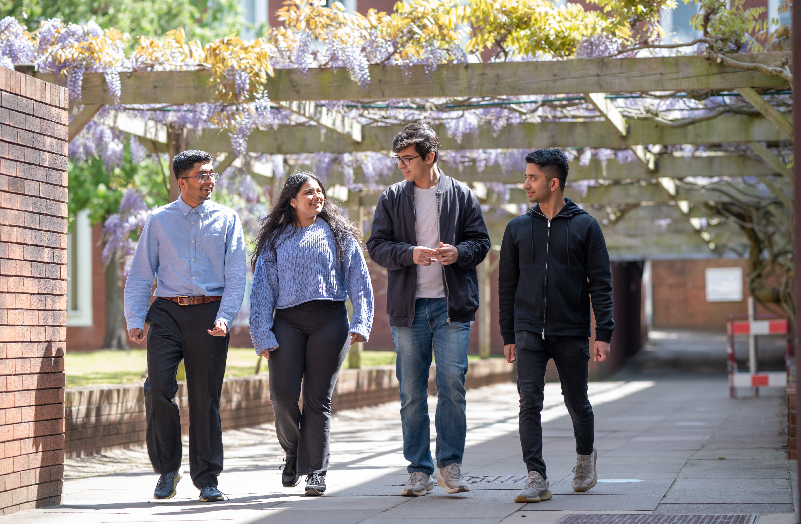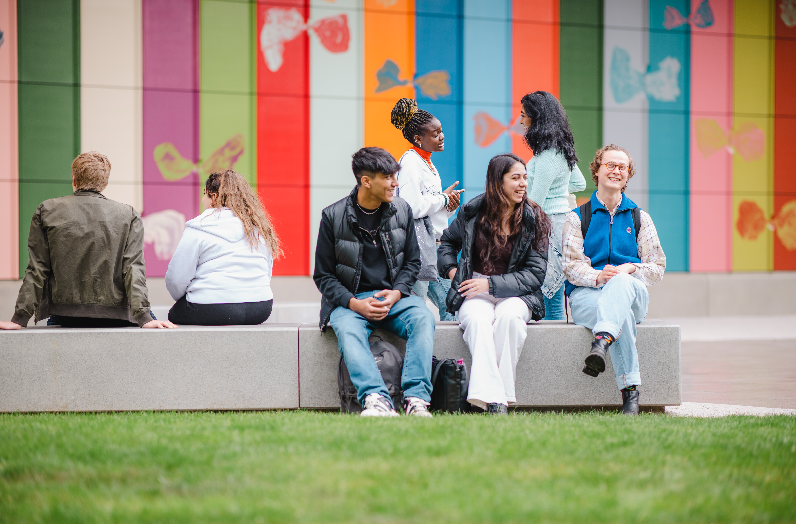Your Student Experience
Our PPL departments are based right in the heart of Warwick’s campus, in the Social Sciences Faculty, next to the Library and Arts Centre. You can chat about your study and socialise with your coursemates in our shared Common Room with free hot drinks. WiFi is free campus-wide and there’s a range of restaurants, cafes, shops and meeting places.
Societies
PPL students have the opportunity to participate in over 250 societies and an excellent range of other exciting extracurricular opportunities. You could be teaching politics in schools, volunteering for pro-bono legal work, debating philosophical concepts or learning a language, and so much more.
Some societies of interest:
- Warwick PPL Society
- Politics Society
- Philosophy Society
- Law Society
- International Relations Society
- International and European Law Society
- Model United Nations Society
- TEDxWarwick
- Check out the over 250 societies the Students' Union has to offer.
Departmental Activities
There are also a wide range of departmental events and activities, for example:
PAIS Research Centres
In Politics and International Studies, the active Research Centres run regular talks and seminars that welcome students to engage with academics on their cutting-edge research activities. Their five Research Centres focus on topics in Democratisation; Globalisation and Regionalisation; Ethics, Law and Public Affairs; Ethics; and International Development - allowing students access to a large range of influential and enlightening work.
Pharos, the Warwick Philosophy Magazine
Pharos is an undergraduate philosophy magazine founded in 2016, run by undergraduates for undergraduates. From Continental to Analytic, Chrysippus to Kant to Kierkegaard to Kamm, Pharos aims to provide a forum for philosophical commentary and analysis that caters to a broad range of interests that extend beyond lectures and seminars.
Mooting
Warwick Law School provides many opportunities to participate in national and international mooting competitions (mock court cases where legal arguments are made before a ‘judge’) and there is an active internal mooting programme, as well as a Final Year module designed to develop your skills in the practical, performative and ethical arts of appellate court advocacy and forensic (ie. ‘court room’) rhetoric .
Be Part of Our Research Community
We offer lots of opportunities to get practical experience during your degree. You can secure financial support for your own research through the Warwick Undergraduate Research Support Scheme to carry out a project of your choosing during your summer holidays. If you are successful, you’ll get research funds and skills development training to help complete your project. You’ll carry out, write up and present research supervised by an academic member of staff.
There are lots of opportunities to publish your writing, opinions or research. You could write an article for Re-Invention, the online, peer-reviewed journal co-edited by Warwick and Monash University, Australia. Many of our students also publish or edit in our student-run newspapers and magazines like Warwick Globalist, Lacuna Magazine, Obiter Dicta or The Boar, writing on topics like world politics, human rights, domestic affairs, and campus life.
Student Research
We have PPL Research Assistants working with academic members of staff to support research, teaching and student experience in Politics, Philosophy and Law. As a Research Assistant, students are paid to work on a project with an academic and gain a greater understanding of research and teaching at university.
The Warwick Undergraduate Research Scholarship Scheme gives students the opportunity to become directly involved in the research work of the university, experience what it's like to be a member of a research team and take part in cutting-edge research. URSS provides living expenses and skills development to support successful applicants who wish to carry out a summer research project as an addition to their undergraduate degree course.
Work Experience
The PPL programme appoints a number of PPL Student Ambassadors every year to support the programme with outreach and Open Day activities. If you come to one of our Open Days you are bound to meet one of our ambassadors as they share their experiences as a current student.
Career Options

Warwick has the highest number of student societies of any UK university, so it is easy to join something that you find interesting. I joined the Warwick Handball Club, for which I was Social Executive for a year.
I have also attended many society events, the most remarkable being the Warwick Economic Summit, the Warwick Africa Summit and Warwick Congress."
Stephane
PPL Graduate

Being a part of Warwick Law Society has allowed me to understand all the possible routes into a legal career after my degree.
They do an amazing job of connecting students to information on becoming qualified, as well as
meeting lots of other aspiring lawyers."Sophia
PPL Graduate

